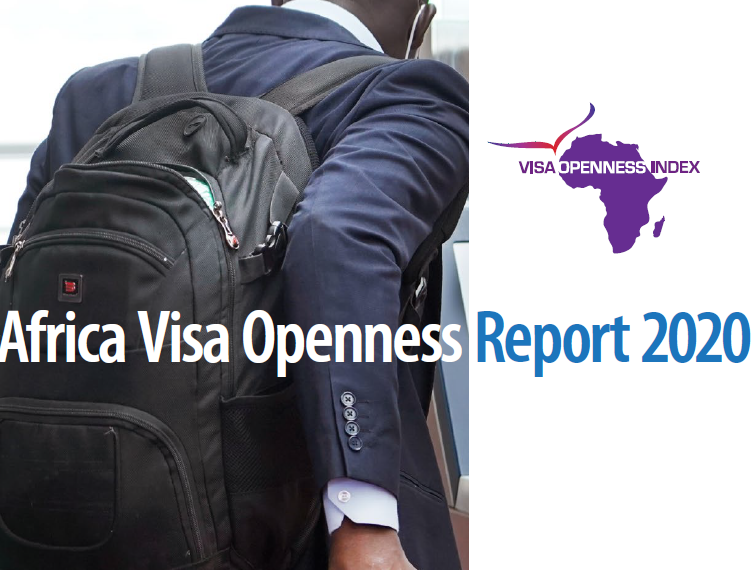In addition to championing a continental free trade area, many African countries have made commitments to liberalize their visa regimes in order to encourage free intra-African travels.
While the former is yet to commence in January 2021, the latter is already in force and indications are that there is a general upward trend in Visa openness, with a record of 93% of countries either improving or maintaining their scores over the years.
Per the Visa Openness Index, the higher a country scores, the more visa open it is and the higher it ranks. Scores range from 0 (lowest) – 1 (highest). The index is categorized into three sections, namely; visa required, visa on arrival and no visa. Each category is weighed based on its degree of openness. A ‘no visa result’ is weighed by 1 (high openness), ‘visa arrival’ is weighed by 0.8 and a ‘visa required’ by 0.

Against this backdrop, the 2020 edition of the Visa Openness Index shows that, Ghana ranks fifth across the continent with a score of 0.875. Whereas countries such as Gambia, Seychelles and Benin all ranked first in Visa Openness with an Index of 1.000.
Between 2016 and 2020, only six countries in West Africa made significant progress on the index, and Ghana makes the cut in joining five other countries in the region: Benin, the Gambia, Senegal, Nigeria and Sierra Leone.
However, between 2019 and 2020, Ghana made little to no progress in visa openness. Even so, the COVID-19 travel restrictions that were widely imposed across Africa threatens to erode the past progress made in Ghana and other African countries regarding visa openness.
This notwithstanding, other major highlights of the report indicate that, “African travelers have liberal access to travel to a record 54% of the continent, up by 9% since 2016, and can travel visa-free or get a visa on arrival in their destination. At the same time, fewer African countries are requesting visitors to have a visa prior to travel.”
Furthermore, the number of countries offering eVisas for African travelers also continue to trend upwards, with 44 percent of countries hosting an online platform, up from 17 percent in 2016. Notably, most eVisa countries have either made progress on the index or find themselves in the top scoring countries on the Index.
The report also reveals that 26 percent of African countries do not require visas from other Africans. This figure is 6 percent more than that of 2016. Also, 28 percent of African countries are lax with visa rules, such that Africans can get visas on arrival in those countries. Yet, some 46 percent of African countries require visas before they would allow entry of other Africans.
The findings from the index reinforces the benefits of prioritizing visa openness solutions in large and small economies, with the biggest gains accruing to business, investment, innovation and tourism. This also serves to complement the free movement of people, goods and services during the implementation of AfCFTA in January 2021.
“… as the evolving fallout of the COVID-19 pandemic has shown, countries increasingly need to look beyond domestic frontiers in order to boost their economic prospects.”
“Visa openness will support Africa to reposition its future growth and, at the same time, promote participation in regional and global value chains,” says the Vice President of the Regional Development, Integration and Business Delivery, Dr. Khaled F. Sherif.
READ ALSO: Ghanaian businesses may lose out on AfCFTA benefits




















